Benefits of Automated Test Platform (ATP)
In this blog, we’ll explore the benefits of incorporating the Sage X3 Automated Test Platform into your system.
As Sage X3 continues to deliver new functional and technical enhancements in V12 via biannual patch releases, keeping up to date with the latest patches is now more important than ever in ensuring your system remains secure, supported, and able to fully utilise the latest Sage X3 functionality.
Undertaking system patching requires comprehensive regression testing in order to ensure system continuity and stability. For a lot of businesses, at best this is often a time-consuming, costly and outright arduous manual process which drags key people and resources away from other value-added tasks. At worst, manual testing can often lead to inconsistent results and a reluctance to embrace further change, leading to outdated systems and increased cybersecurity risks.
The Sage X3 Automated Test Platform (ATP) offers a simple, scalable solution to minimise manual testing and bring the following benefits to your business:
- Mitigate cyber vulnerabilities
- Stay up to date with the latest patches and functionality
- Low-cost compliance documentation
- Standardised testing and reporting of SOP
- Greatly reduced human intervention
- Early detection of issues
- Increased system confidence
The introduction of the Sage X3 Automated Test Platform into a Sage X3 environment can bring numerous benefits to your business; such as: increasing the speed and consistency of testing, visibility of reporting, maintenance of compliance and cost-savings.
Sage X3 Automated Test Platform (ATP) achieves this through a combination of the following features:
End-to-End Process Replication
Automated Test Platform (ATP) allows you to automate processes specific to your business whether that be within one function, such as creating a new product, or a complete end-to-end process such as order to cash.
It does this by allowing a complete replication of the user’s data entry – incorporating things such as selecting entry transactions, searching for values, using the left list selection, drilling through into different fields and navigating past various pop-ups and warning boxes.
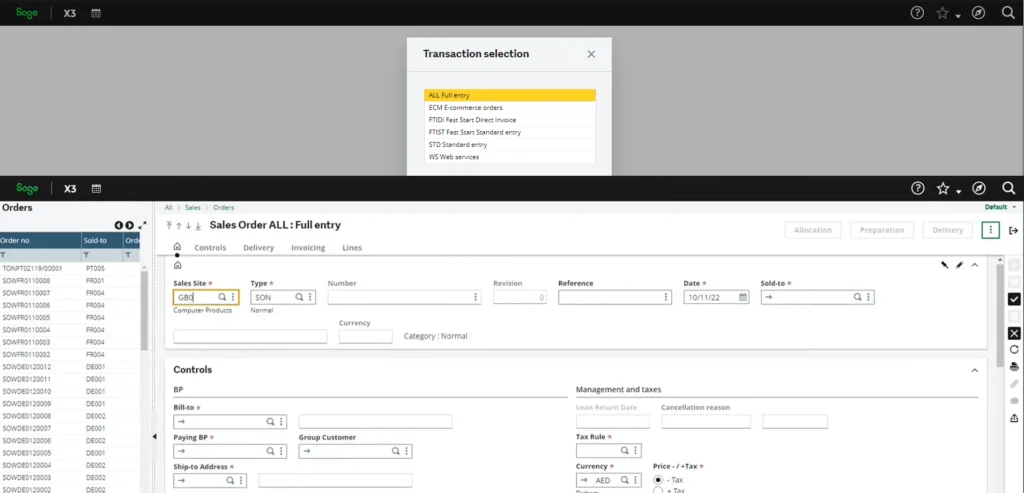
Pre-Built & Easily Customisable Scenarios
Out of the box, the Automated Test Platform (ATP) features over 100 pre-built scenarios, from simple steps such as logging in, to advanced end-to-end end processes such as procure to pay. The platform features ready-made templates that can be quickly fine-tuned to suit your specific business processes.
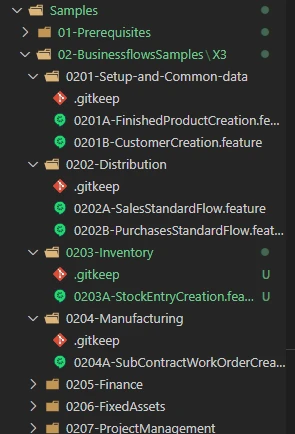
In Application Script Assistant
The Automated Test Platform (ATP) also features a plugin to Sage X3 for creating your test scripts, allowing users to conduct their processes directly within a function in Sage X3. With just a few clicks, their actions can then be exported to form the basis of a new testing template which can be easily modified for further test scenarios.
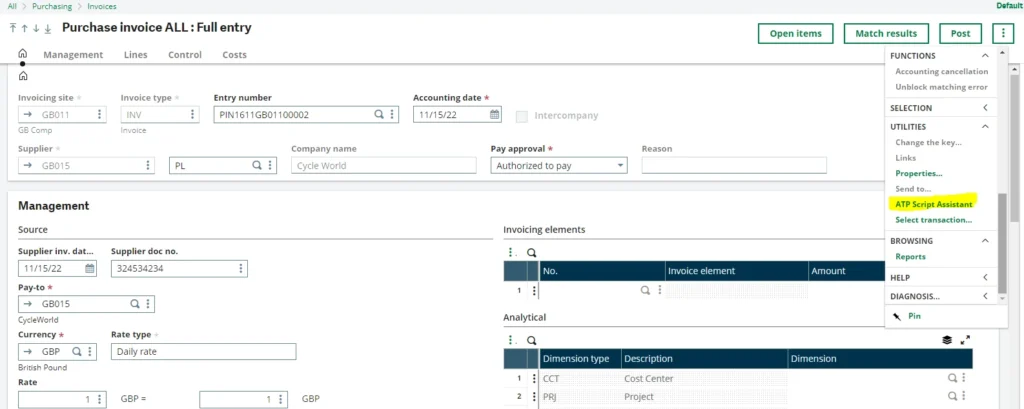
User-friendly natural language for non-developers
Automated Test Platform (ATP) test scripts are written in Visual Studio, which will be an environment well-known to most developers. These scripts however are written in a natural, user-friendly language called Gherkin.
Unlike your stereotypical snippet of code, Gherkin is written in plain text sentences which describe what the line of code is doing, making it easy for non-programmers to be able to understand, modify and build scenarios themselves, ultimately allowing test scripts to reflect Standard Operating Procedures (SOPs)’s and be written by those most familiar with the business process.

Easily run 100’s test cases with a click of a button
The Automated Test Platform (ATP) is installed along with Jenkins, an industry-leading automation server, on which you can build testing ‘pipelines’.
Specify which scripts are to run, when and in what order, allowing simultaneous and repeatable testing without diverting resources away from the business.
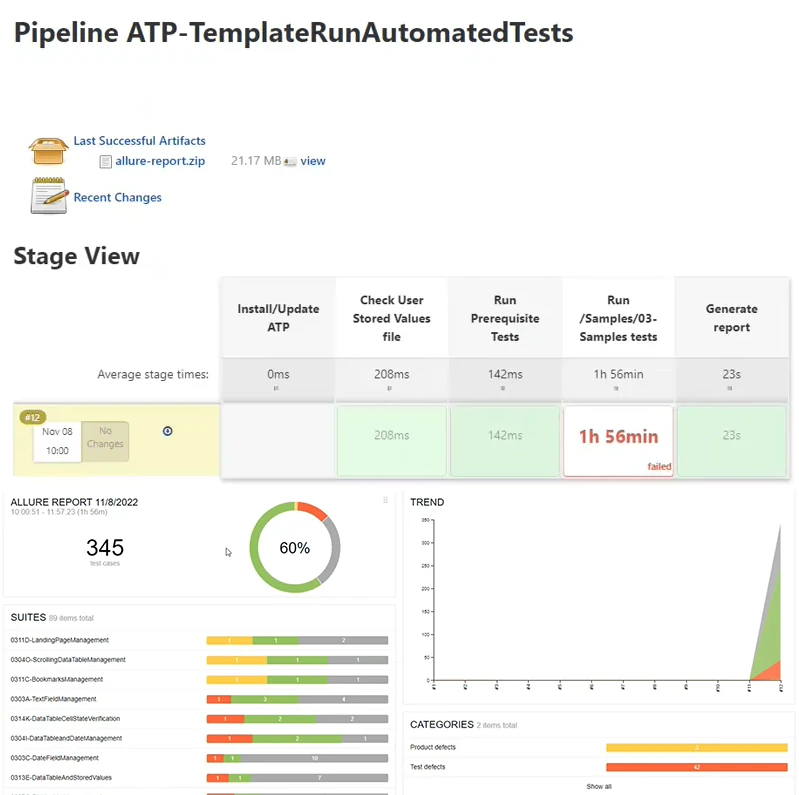
Easily modify, re-run and maintain test cases
The scripts also contain parameters, both system and user-created, which can easily be set either within Visual Studio or Jenkins. The use of parameters makes re-running and maintaining your scripts simple.
If you wish to test the same script across different sites, you can simply set the site as a variable, change that one parameter and you can instantly switch all of your test cases to run on that site.
The parameters can also be used for things such as users, so tests can be replicated under different function permissions, and to store the value of newly created information – such as a sales order number created on a previous test, to avoid the need for constant tweaking of scripts.
Holistic reporting
Through Allure, the Automated Test Platform (ATP) provides holistic reporting of your testing pipeline, every step of the way.
High-level reports of test timings and script failures can be set up and each script can be drilled into to provide detailed information on the test/failure or each testing step, accompanied with screenshots.
Test failures can be categorised to ensure standardization across the testing process, and previous information on previous tests can easily be stored and recalled, which is essential for high-compliance industries.
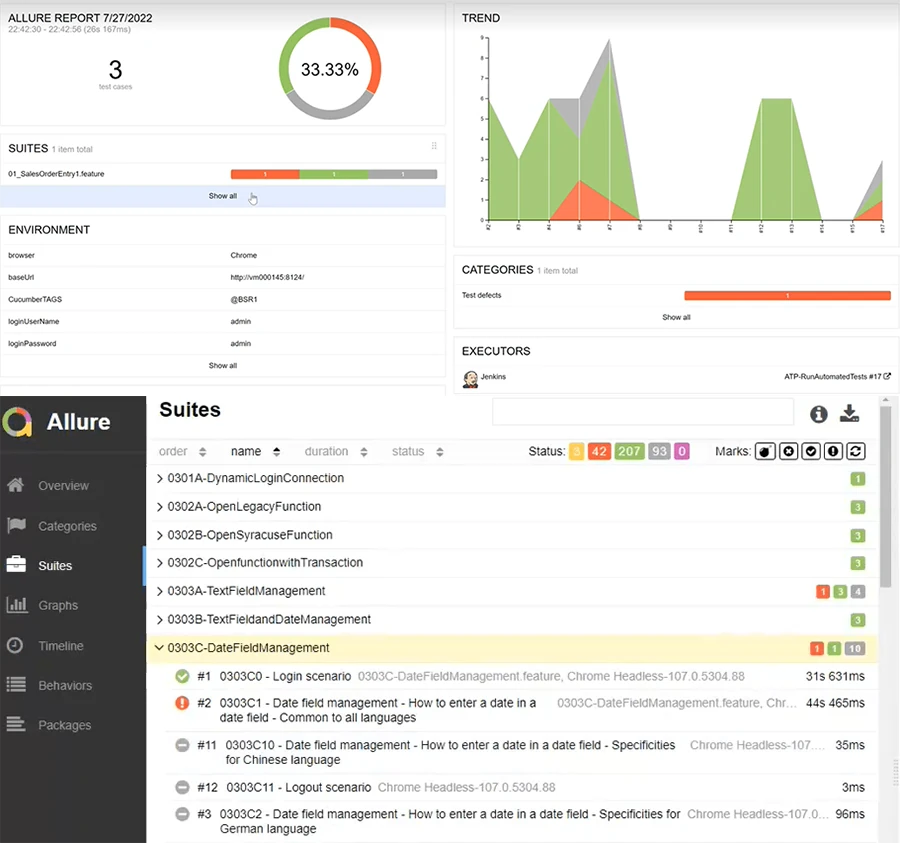
Minimise Repetitive Manual Testing & Maintenance
Easier Incorporation of the latest functionality, security and support enhancements
Maximise Efficiency & Effectiveness of Testing
Time / cost / resources savings
Summary
Using testing automation, as we have seen above, can provide a wide range of application and business benefits. For businesses looking to stay up to date, and those operating in high-compliance industries (such as food and beverage, pharmaceuticals & chemicals), adopting Automated Test Platform (ATP) is likely to provide extensive benefits and rapid ROI.


